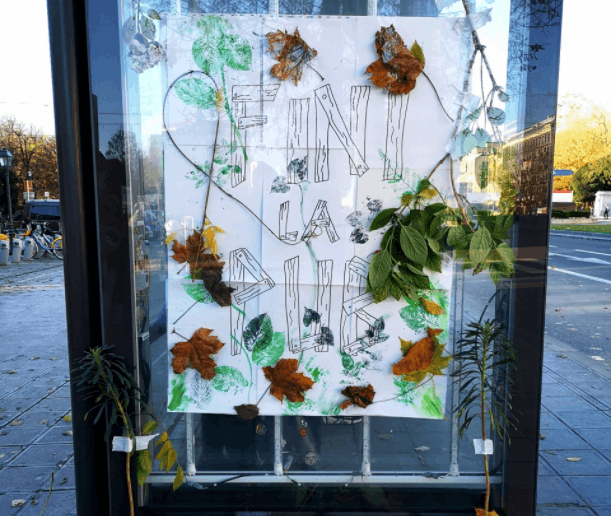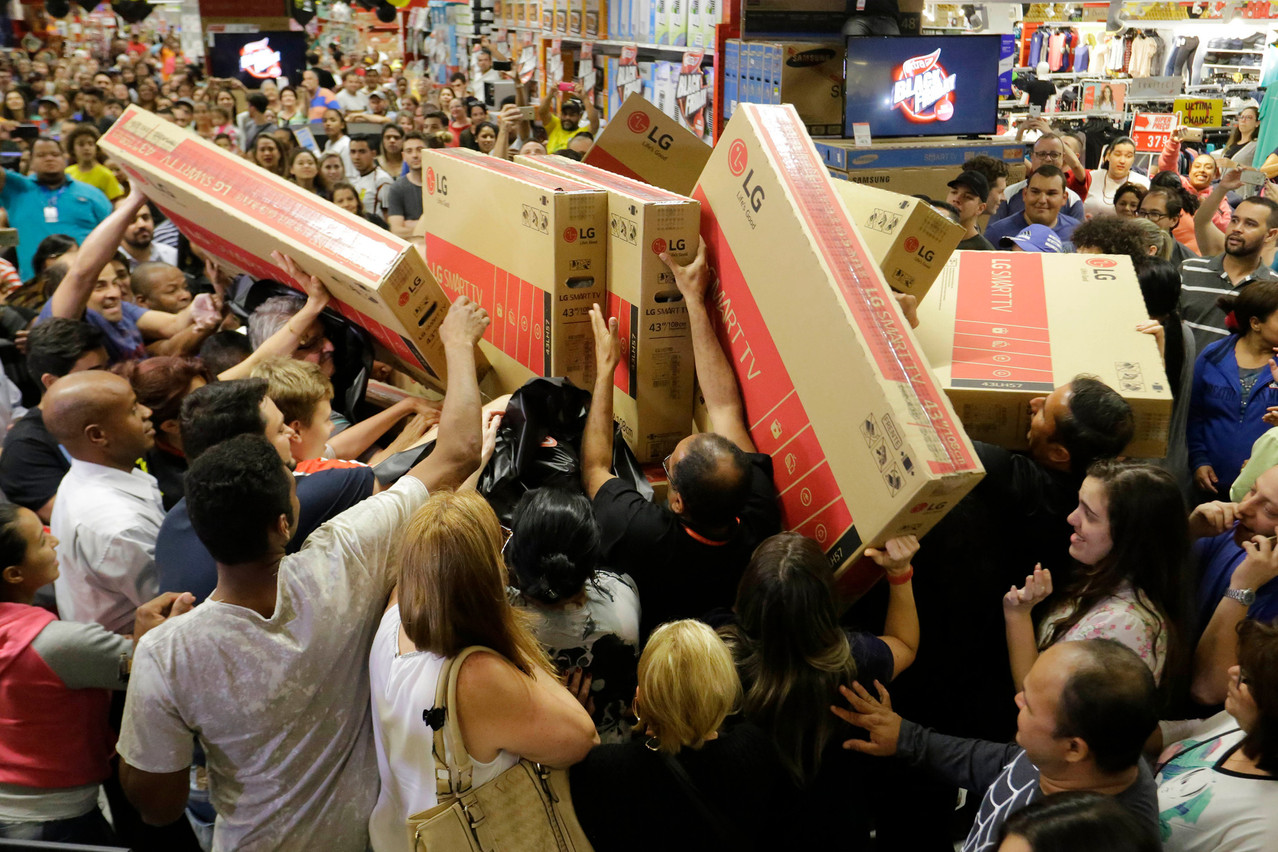Sales practice turned tradition
The US-born Black Friday tradition earned its title from the incredible masses that would swarm shops post-Thanksgiving. Over time, with globalisation and the internet, the phenomenon has spread to Europe, where it has become a must-do event for retailers and it is the perfect opportunity for people to buy things they usually couldn’t afford, and for shops to empty their stocks.
The Belle Etoile shopping centre, for instance, opens its doors until midnight on the day of. Dancers, musicians, circus acts and cocktails will be presented during the event, which has the grandeur of a New Year’s celebration.
“It’s not just a sales day, it’s an event,” says Manu Konsbruck, the director of the Belle Etoile.
“For us and for the individual shops, it’s one of the biggest sales of the year. It’s on the same level as Christmas sales. It’s only four more hours but the event is so engraved in people’s mind all over the world that it has a strong impact on visitor numbers,” he adds. “It’s a meeting people expect, because they are so aware of it existing, which allows for good deals.”
The European Consumer Centre, which protects consumer rights, set up a post-Black Friday helpline to help customers who have faced issues with their purchases.
Sustainability flying off the shelves
While activists, EU legislators and politicians push for a better, greener, more sustainable future, open invitations to mass consumption are accepted on this day. Following the recently concluded Cop26, promises towards a more sustainable society were made. But what the world--especially Western countries where Black Friday thrives--needs to meet the targets set by various treaties, is degrowth.
Aside from local shops that have to lower their prices to compete with retail chains, big online stores, such as Amazon or H&M also offer customers the opportunity to buy a plethora of products for ridiculously small prices… while promoting their newest advancement in eco-responsibility all year round.
There thus seems to be a dissonance between their words--inviting to consume more consciously--and their actions--knocking people unconscious with irresistible sales.
But, as some count down the days to the event, others are now protesting it.
Green Friday: an alternative or greenwashing?
Cue Green Friday, a countermovement to Black Friday meant to protest the day. In theory, Green Friday invites people to buy second-hand or to follow the reuse-repair-recycle mentality. In practice, it really depends on the business participating.
Some completely turn their back on Black Friday, like online beauty brand Deciem which closes its website on the day. (It does offer sales every other day of November). Activists around the world manifest in peaceful ways, such as the Belgian environmentalists who hijacked advertisement boards on the run-up to Black Friday.
And then, other brands push customers to buy from sustainable brands instead of the usual big chains. Though buying from eco-friendly brands is an improvement, it can seem like greenwashing when it’s about pushing people to purchase many things they don’t actually need or use.
What is needed, is degrowth. It’s buying necessary items and leaving aside the superfluous, no matter how tempting the offer.

The ZAP Games in Brussels, were an Olympic Games-type of event challenging activists to peacefully and playfully replace advertising posters with messages relating to the environment. ZAP Games, via RTBF
Implementing new traditions
There are ways around it.
One would be to choose to proactively avoid the masses and stores on the Black Friday weekend. Another would be to consciously go around the house and sort things à la Mari Kondo.
Finally, if the idea of grabbing a good sale feels irresistible, there are Black Friday deals on things that don’t involve buying stuff. Going to the cinema for half the price, or getting a digital subscription for a lower price, might be an option.
So take a deep breath, put that coriander-scented candle down and turn around.
